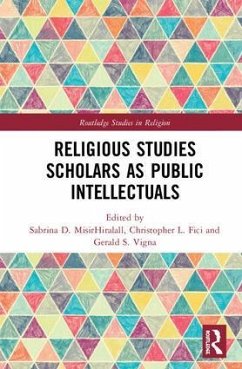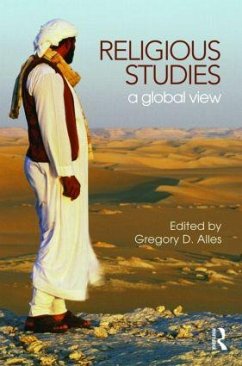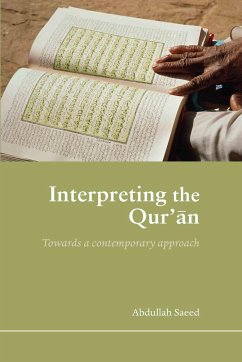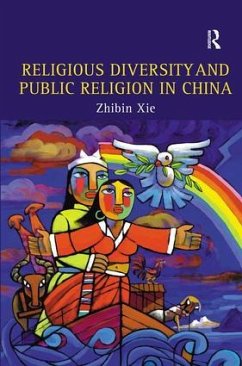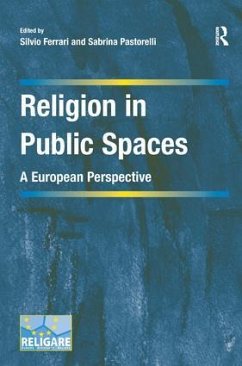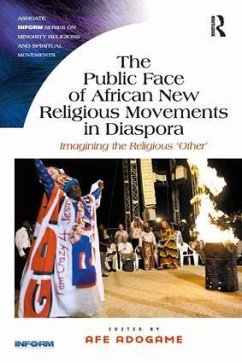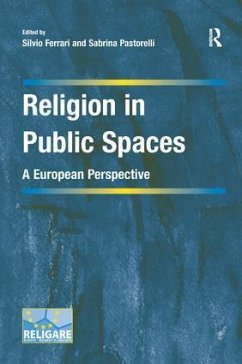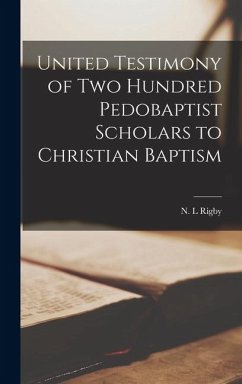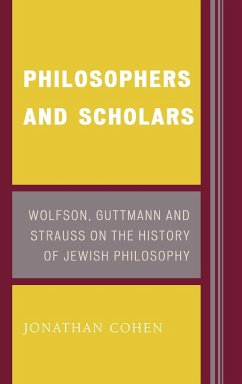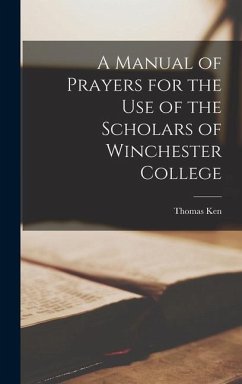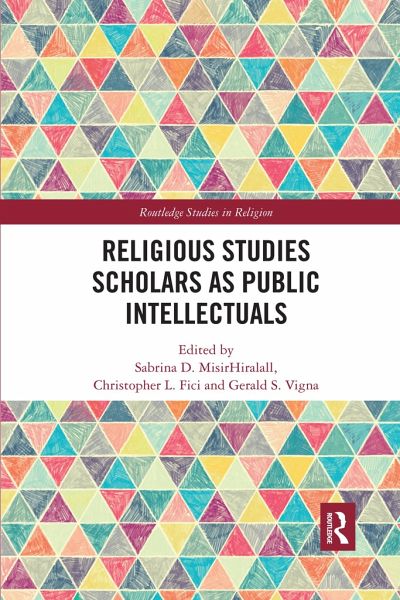
Religious Studies Scholars as Public Intellectuals
Versandkostenfrei!
Versandfertig in 1-2 Wochen
55,99 €
inkl. MwSt.
Weitere Ausgaben:

PAYBACK Punkte
28 °P sammeln!
The prominence of religion in recent debates around politics, identity formation, and international terrorism has led to an increased demand on those studying religion to help clarify and contextualise religious belief and practice in the public sphere. While many texts focus on the theoretical development of the subject, this book outlines a wider application of these studies by exploring the role of religious studies scholars and theologians as public intellectuals. This collection of essays first seeks to define exactly what makes an intellectual "public". It then goes on to deal with a few...
The prominence of religion in recent debates around politics, identity formation, and international terrorism has led to an increased demand on those studying religion to help clarify and contextualise religious belief and practice in the public sphere. While many texts focus on the theoretical development of the subject, this book outlines a wider application of these studies by exploring the role of religious studies scholars and theologians as public intellectuals. This collection of essays first seeks to define exactly what makes an intellectual "public". It then goes on to deal with a few questions of concern: How do public intellectuals construct knowledge in religious and theological scholarship? What is the link between public intellectuals of higher education and their role in society? Do higher education institutions have a responsibility to endorse public intellectualism? Looking at the individual and collective role of religious studies scholars and theologians in public life, this book will be of great interest to all scholars and academics involved in religious studies and theology across the academy.





